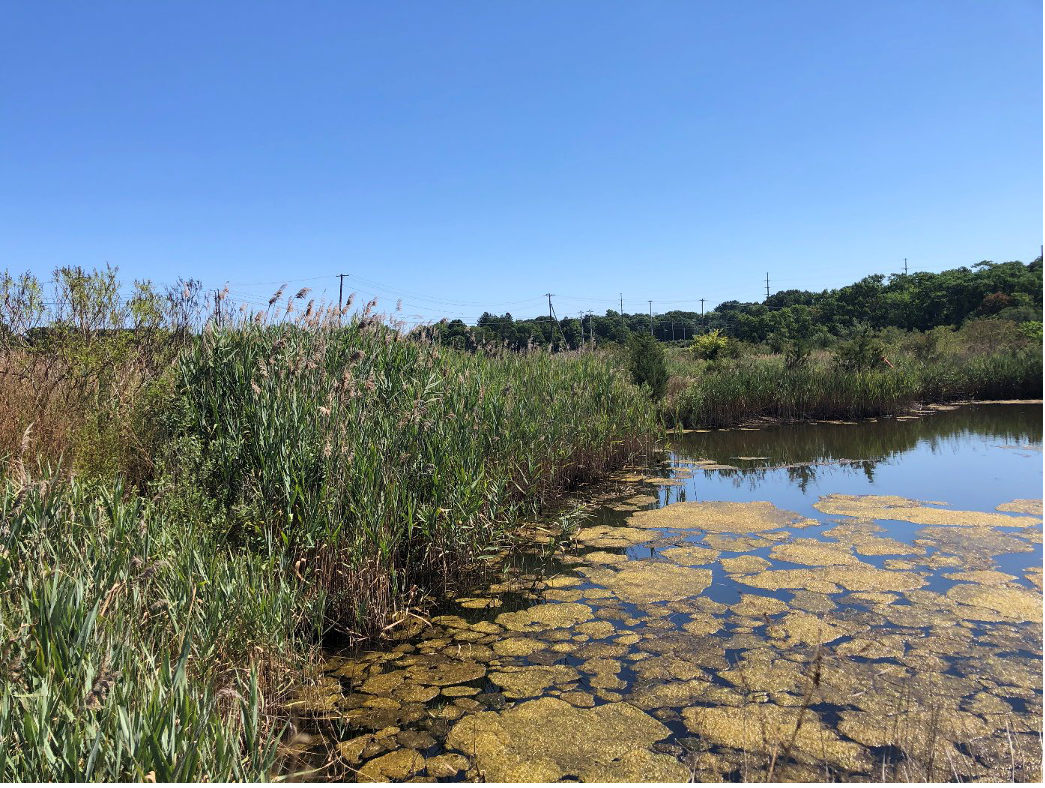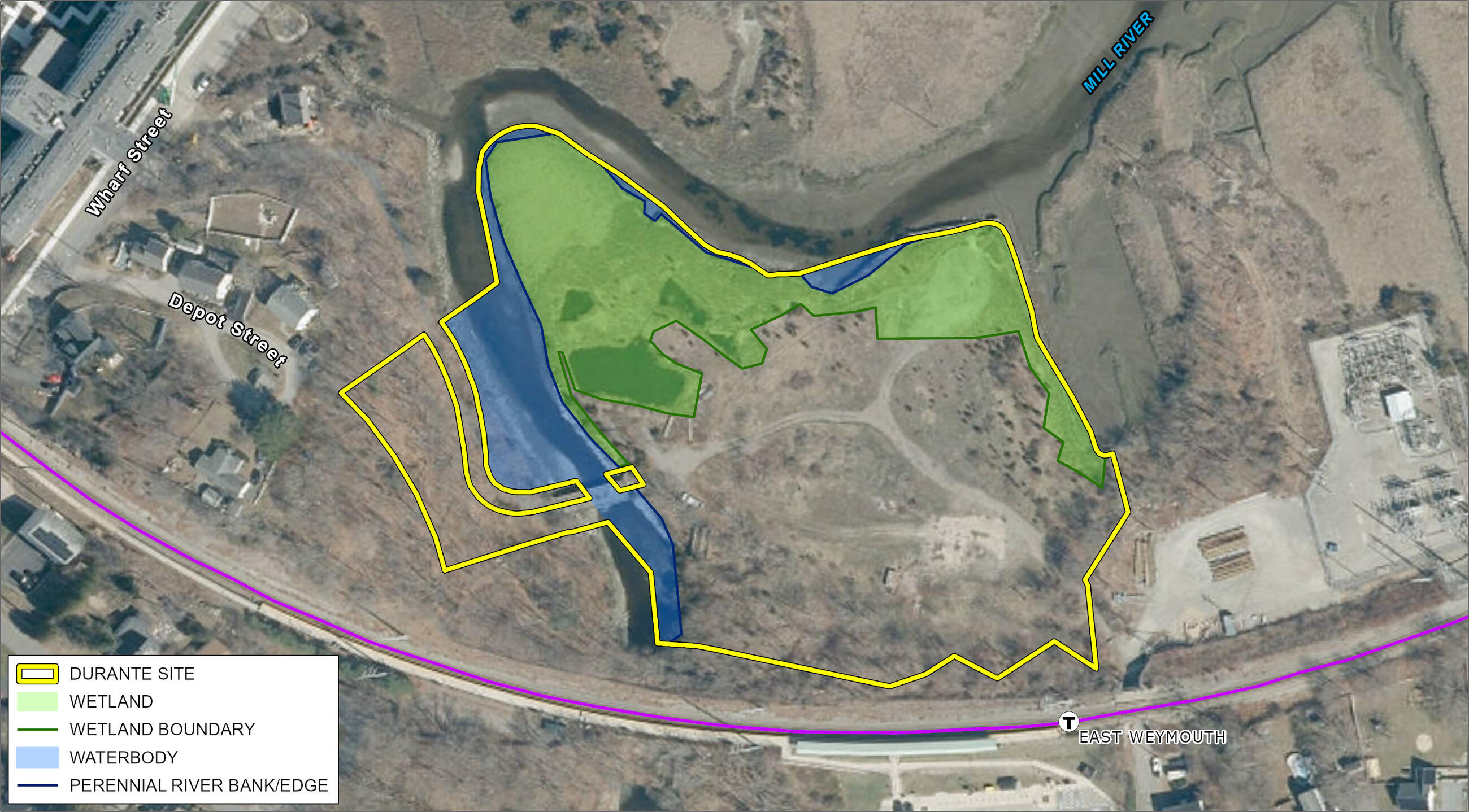Durante Remediation and Wetland Enhancement

We are treating contaminated soil and groundwater and restoring the Durante wetland complex near East Weymouth station.
Durante is a vacant lot along the Weymouth Back River that contains wetlands and a salt marsh. The area is part of a coastal floodplain designated by the Federal Emergency Management Agency (FEMA). It is also part of the Weymouth Back River Area of Critical Environmental Concern (ACEC).
Once this project is complete, we will transfer management of Durante to the City of Weymouth.
- Design contract awarded: 2023
- Construction contract bid: Spring – Summer 2026
- Estimated completion: 2027
- Budget: $1,775,000
- Status: Concept design
Building a Better T
As part of our $9.6 billion, 5-year capital investment plan, we're renovating stations, modernizing fare collection systems, upgrading services for our buses, subways, and ferries, and improving the accessibility of the entire system.
About Durante
The MBTA purchased the Durante property in 2003. We intended to use the area to support environmental permitting requirements for construction on the Greenbush Line.
We completed all permitting requirements for the Greenbush Line at other locations, but we continue to work on the restoration of the Durante property.
Why We're Doing This Work
In 2007, we discovered concentrations of chemical compounds in some soil and groundwater at Durante that required treatment.
The soil is contaminated with:
- Polychlorinated biphenyls (PCBs)
- Metals
- Polycyclic aromatic hydrocarbons (PAHs)
- Extractable petroleum hydrocarbons (EPHs)
Safe standards for concentration levels are based on the Massachusetts Contingency Plan and the federal Toxic Substances Control Act.
We will remediate the soil at Durante to a condition of No Significant Risk. This means removing or controlling chemical compounds so there is no significant risk to the health and safety of surrounding communities and the environment.
This work will also improve the wetland's existing function, support its natural increase in biodiversity, and promote the growth of native plants.
Project Activities
To remediate contaminated soil in ways that are consistent with No Significant Risk, we will:
- Repurpose the soil on site
- Install an exposure barrier, a layer of material that we'll build to prevent contact with soil underneath
- Transport soil to off-site, licensed disposal facilities
To restore and enhance the wetland, we will:
- Remove non-native and invasive species, like the common reed
- Excavate and dredge certain areas to improve surface water infiltration and better connect the wetland's open water areas to the Weymouth Back River
Project Goals
The goal of this work is to:
- Eliminate risks to the health and safety of surrounding communities and the environment
- Increase the wetland's salt content to help native salt marsh species establish themselves over non-native species
- Encourage the wetland's increasing biodiversity
Environmental Impacts
To begin the permitting process, we will soon submit an Expanded Environmental Notification Form (EENF) and a Rollover Environmental Impact Report (EIR) to the Massachusetts Environmental Policy Act Office (MEPA).
The EENF and Rollover EIR are documents that describe how this project may impact the environment and nearby environmental justice communities.
Please check back for upcoming opportunities to get involved, including:
- An environmental justice virtual public meeting with the project team
- Links to view the EENF and Rollover EIR
- Ways to send your feedback about the EENF and Rollover EIR to the project team
Past Events
Contact Us
For questions about the Durante Remediation and Wetland Enhancement, contact the Public Engagement team at publicengagement@mbta.com.
Building a Better T
As part of our $9.6 billion, 5-year capital investment plan, we're renovating stations, modernizing fare collection systems, upgrading services for our buses, subways, and ferries, and improving the accessibility of the entire system.

